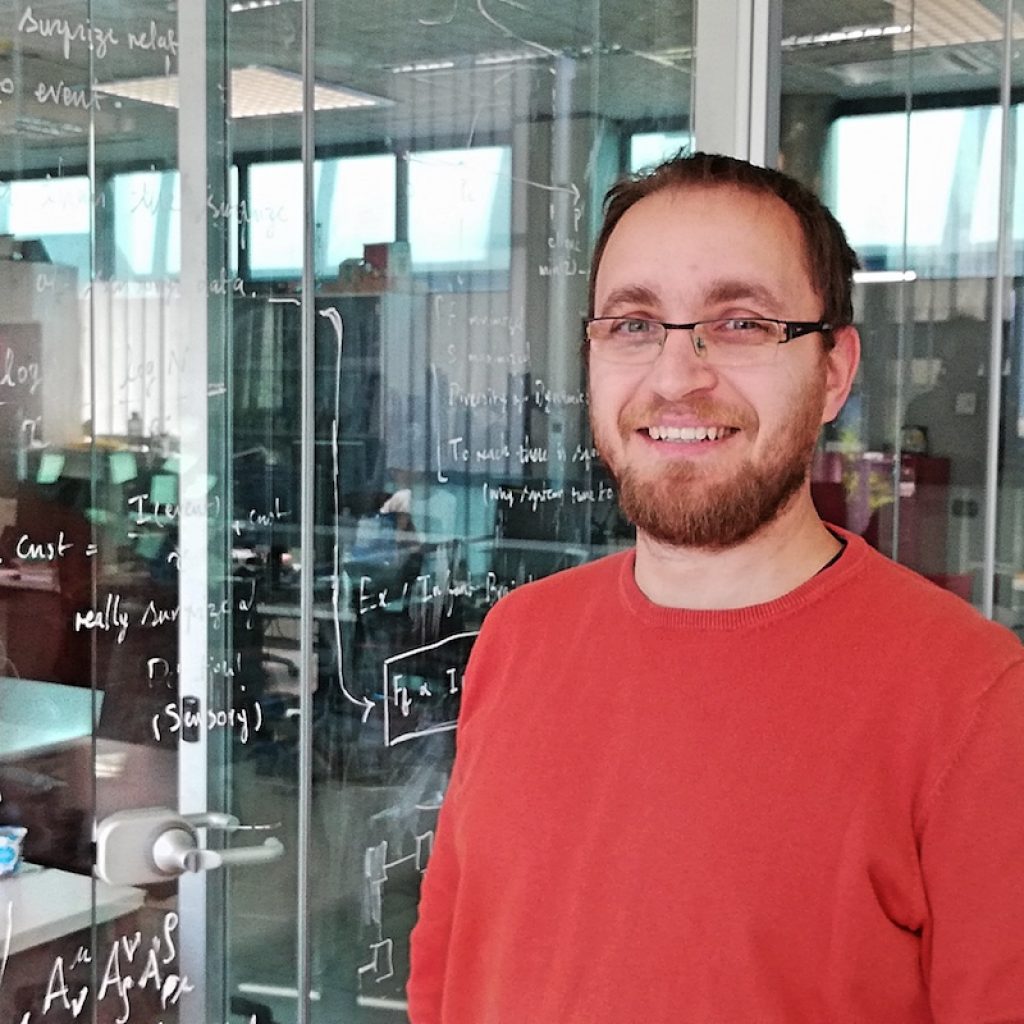Event
Manlio De Domenico Wins the USERN Prize in 2017 in Formal Sciences

Let me thank the organizers, the international committee of the Congress for this prize. Which is an outstanding recognition of my research activity in the last 5 years. Also please accept my apologies for not being in Kharkiv today'' -Dr. Manlio De Domenico
Dr. Manlio De Domenico Won the USERN Junior Prize in 2017 for Significant Contribution to Formal Sciences. The following article is an overview of his past and present scientific achievements earning him the USERN Prize of 2017
The USERN Prize is an international and independent prize aimed to identify young scientists on the verge of their carrier, those who have contributed to their field with significant scientific projects, human endeavours and exceptional talent, under age of forty. Dr. Manlio De Domenico is Italian and youngest of USERN laureates, born in 1984, and currently a research fellow in computer science at Department of Computer and Mathematical Engineering, at Rovira i Virgili University, Tarragona, Spain. He is now a member of the high prestige group of Prof. Alex Arenas who deal with the mathematical formulation of multiplex networks and the study of dynamical processes on such interconnected multilayer graphs. During the last few years he has worked with the joint group of Catania Auger Group and the Laboratory for Complex Systems on characterization of the nature the highest energy cosmic rays detected from the Pierre Auger Observatory (Malargue, Argentina). Dr. De Domenico introduced a novel method for estimating the statistically significant amount of anisotropy in the arrival direction distribution of few events. The method involves a multiscale procedure, based on information theory and extreme value statistics, providing high discrimination power, even in presence of strong background isotropic contamination.
Dr. Domenico had also worked in development of nonlinear techniques to characterize chaos, stochastic fluctuations and scale dependent multifractality from complex univariate scalar time series, and the C++ software as the result. Dr. De Domenico took the title for USERN prize 2017 formal laureate with "Multilayer structure and dynamics of the physical world: modeling the complexity of systems of systems". Abstract of his scientific project that came into view by the USERN board of social science referees reads:
"Complex systems are characterized by constituents -- such as neurons in the brain, individuals in a social network, countries in international trade, and so forth so on -- whose interaction dynamics is highly nonlinear. The main consequences of such a nonlinearity is that a complex system can not be understood by studying its constituents separately, because their interactions lead to unexpected emerging phenomena, from collective behavior to phase transitions. A widely adopted approach to the study of such systems is by means of complex networks, providing an abstract representation of relationships between the constituents of a complex system. However, several complex systems are characterized by units interacting, simultaneously, in several ways. One of the most challenging problems nowadays is to exploit such multivariate information, representing multimodal relations among units in a networked system, for practical applications. The idea of incorporating multiple sources of information finds its direct counterpart in the fundamental methodological studies I pursued in the last five years about multilayer networks. This framework provides promising solutions because it naturally integrates interdependencies among network's units, across multiple scales. In my recent works I have applied my methodologies to a variety of empirical systems, from biological to social ones, to show that characterizing real systems from a single source of information leads to an incomplete picture of reality. Intriguingly, despite their different nature, many networks exhibit the same type of complexity which can be naturally accounted for by multilayer models, providing one of the strongest paradigm in Network Science nowadays. Computational tools grounded on theoretical physics to reduce the structure of such systems when possible, identify key units and their mesoscale organization, as well as to quantify the overall resilience to random or targeted perturbations are now widely accepted and adopted in a variety of disciplines oriented to applications with societal impact. I have used this theoretical framework to gain new insights on the structure and the dynamics of many empirical systems, especially social and biological ones. In collaboration with the Sharma Lab at Harvard, I proposed a novel way to connect disease-related phenotypes to their underlying molecular mechanisms from a multilayer network perspective. Recently, I proposed a multilayer model for the functional connectivity of human brain that allows to discriminate Schizophrenic brains with higher accuracy than traditional approaches, with several studies confirming the wide applicability of this methodology for other clinical applications."
Parts of Dr. Manlio De Domenico Virtual Speech for Recieving the 2017 USERN Prize in Formal Sciences, Displayed on November 10th, Karazin Kharkiv National University Kharkiv, Ukraine
"Let me thank the organizers, the international committee of the Congress for this prize. Which is an outstanding recognition of my research activity in the last 5 years. Also please accept my apologies for not being in Kharkiv today"
